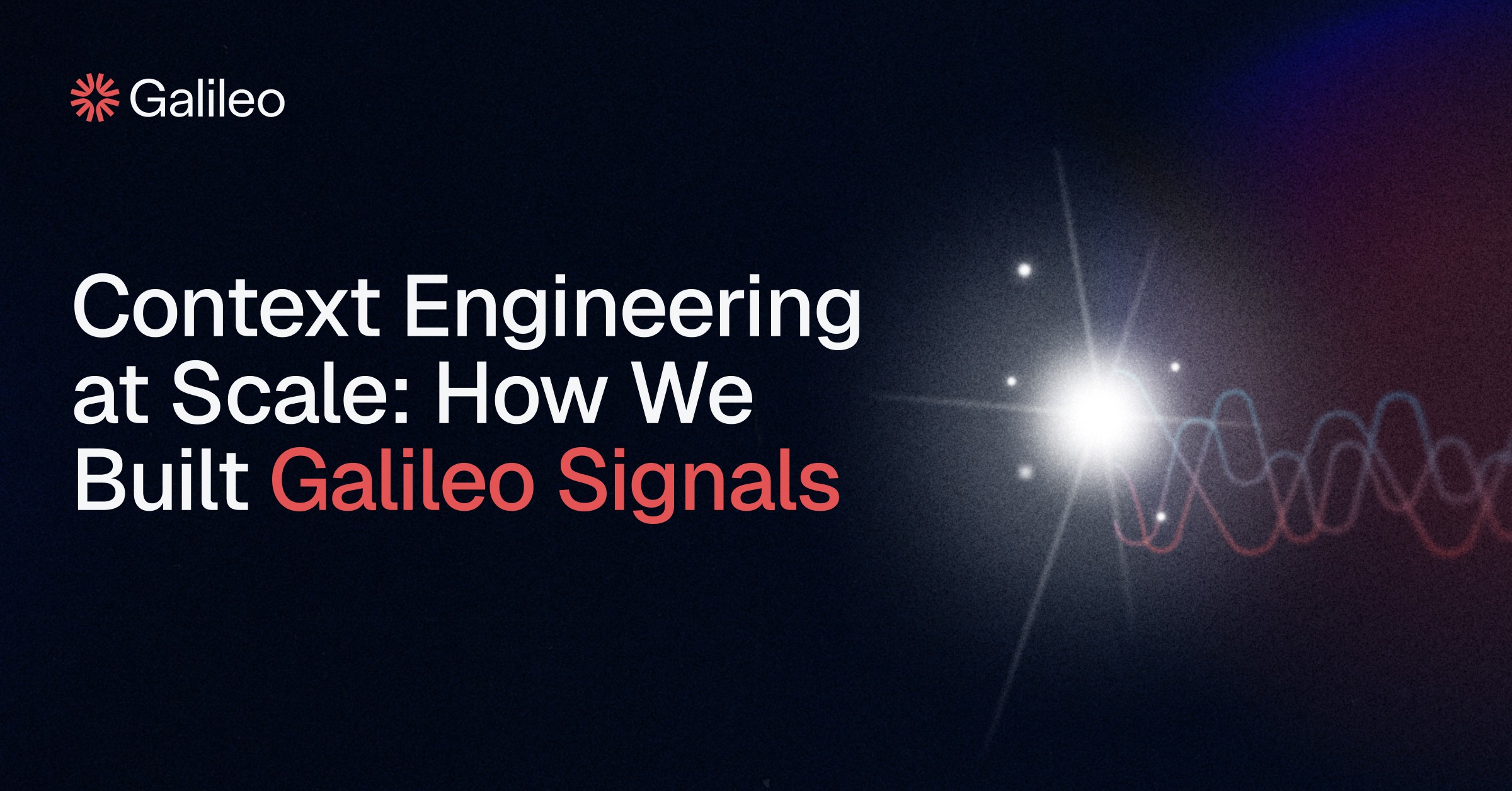Recent Posts
Explore the latest articles, insights, and updates from the Galileo team. From product news to thought pieces on data, AI, and innovation, our blog is where ideas take flight.
Subscribe to our newsletter
Enter your email to get the latest tips and stories to help boost your business.

















































































































































































































